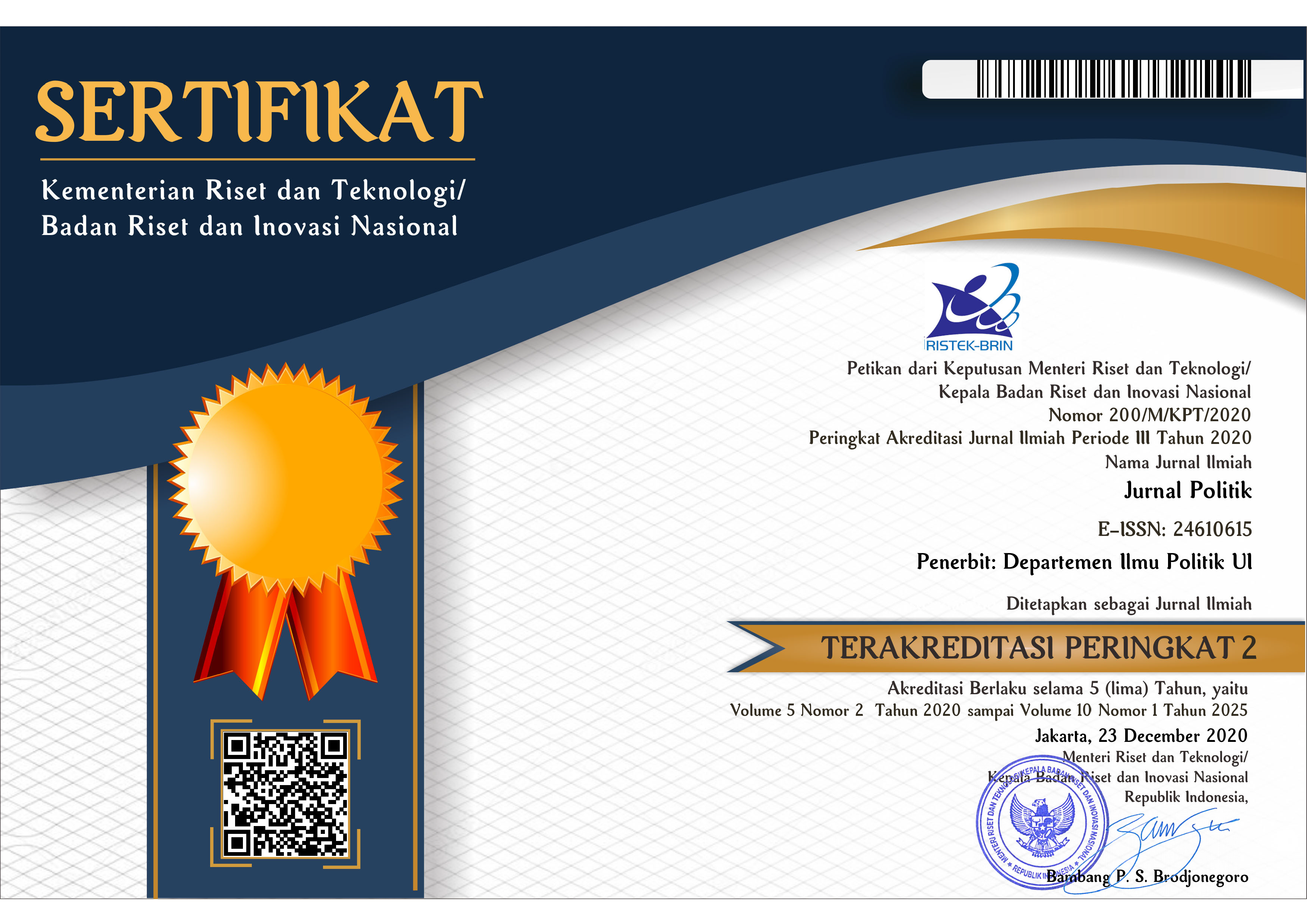Abstract
There were high hopes that Gus Dur, after being appointed by the People Consultative Assembly (MPR) in 1999, would bring significant governance reform and more progressive anti-corruption measures for the first time because two top leaders (Gus Dur and Megawati) were from the opposition in the New Order era. This paper attempts to evaluate the governance reform and anti-corruption measures in 1999–2001. This paper argues that there was a valuable opportunity to push for further governance reforms and a bolder anti-corruption drive, as there was a legitimate political top leadership stemming from the free-and-fair election in 1999 embodied in the appointment of Gus Dur and Megawati Soekarnoputri as president and vice president, respectively, by the Consultative People Assembly (MPR). However, the political bickering and blatant competition over state resources for the election campaign in 2004 underlying Indonesia’s former government led to a setback in several governance reform areas, including judicial reform.
Recommended Citation
Juwono, Vishnu
(2020)
"One Step Forward, Two Steps Back: The Retrogression of Governance Reform and Anti-corruption Measure in Indonesia 1999–2001,"
Jurnal Politik: Vol. 6:
Iss.
1, Article 5.
DOI: 10.7454/jp.v6i1.1010
Available at:
https://scholarhub.ui.ac.id/politik/vol6/iss1/5


